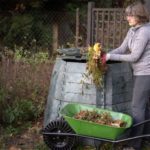
- Published on
- PositivEarth
Eco-friendly living has been growing – and it’s not for no reason. A plethora of positivity flourishes when you choose to live a greener life. Here are some of the lasting impacts that going “green” has on your (and our) world.
Climate
It’s no secret that climate change is becoming a larger issue than just today’s hot topic of discussion. Earth’s local, regional and global climates are severely impacted by our everyday choices and the resources that we continue to use in excess. These human-produced temperature increases are commonly referred to as global warming.
Living a greener life can significantly impact our global warming crisis for our generation and generations to come. Leaving a smaller carbon footprint for our future is incredibly important. Recycling, eating organic, using eco-efficient transportation, gardening, and volunteering for environmental groups or land conservancies are all ways one can decrease the negative impact on our climate and improve the environment around us. One of the most important things we can do is reduce our consumerism as much as we can. By doing this, we lessen our use of plastic, electricity, and fossil fuels. Being mindful of the products we use when we do need to use them creates an impact as well.
Food
Food and climate change are linked in complicated ways. Food production is responsible for a quarter of all greenhouse gas emissions, contributing to global warming. The global food industry requires an enormous amount of energy to cultivate, transport, store, prepare, and serve foods. Today, 7.3 billion people consume 1.6 times what the earth’s natural resources can supply. By eating “green,” you’ll not only be helping your environment, but you’ll be positively impacting your own mind and body.
A lot of factors influence ecological impact, and, if looked at holistically, it’s possible to develop a more eco-friendly diet. Meat has the biggest environmental impact out of all the food types. By switching to a more plant-based diet and eating organically, you can contribute to the shift we need to cut down on the demand for the processed food industry. It’s also important that we reduce the food that we waste, as about 1.3 billion tons of food are wasted each year according to the World Wildlife Foundation (WWF). By taking steps like being more conscientious of what we purchase, using local resources, or composting, we can decrease the amount of food we are wasting without hardly realizing it. Your environment and your body will be thanking you.
Freshwater, forests, and oceans are our planet’s most vital natural resources. With the ability to maintain entire ecosystems within them, they provide our world with everything we need – such as oxygen, energy, clothing, food, and water. Freshwater, forests, and oceans are the very givers of life. To keep our planet functioning properly, deforestation and forest degradation need to be promptly addressed. Forests play an enormous role as a natural carbon sink. Meanwhile, around 24% of corporate emissions reduction activities depend on a stable supply of good, quality water. These precious resources are closely interlinked. As a nature-based solution, forests play an important role in regulating the global water system. A majority of the freshwater that we rely on is dependent on forests. The cycle of such is one of the most primary and natural pieces to keeping the Earth alive. Because of this, it cannot be ignored. Our well-being relies on it.
Sustaining healthy freshwater resources, forests, and oceans starts with our own sustainable living choices. Freshwater habitats (lakes, rivers, streams and wetlands) house an incredible proportion of the world’s biodiversity. Despite its massive role on our planet, this surprisingly finite resource is threatened by climate change, population growth, and changing consumption patterns. A greener and more sustainable lifestyle is the only way we can decrease the risk that our freshwater resources face.
Expanding agriculture as a result of increased population and shifts in diet is responsible for most of the world’s deforestation. The demand for cheap wood and paper (and a quick way to make it) is the largest threat to forests. Forests are being destroyed to make room for man and man-made areas. In degraded forests, plant life is left damaged or dead, rivers are polluted, slopes are eroded, and more. Living more sustainably can help cut down on the supply and demand that keeps this destruction going.
One of the most integral parts of our planet’s functioning is our oceans. The ocean regulates our climate, produces half of the oxygen we breathe, and fuels the water cycle that produces rain and freshwater. A healthy ocean benefits our entire existence, yet, it’s heavily threatened. Living more eco-friendly – by cutting down on our waste, being mindful of our use of plastic, and using eco-friendly products among other things – can help cut down on the pollution of our oceans.
Wildlife
Living the “green” life not only has its lasting impact on mankind, but animal-kind, as well. It’s important to recognize the array of life that calls our planet “home,” and make sure we can make the very best environment for all living life to succeed. Humans are responsible for the current rate of species extinction, which is at least 100–1,000 times higher than nature intended according to the WWF.
Volunteering and/or donating to wildlife preservation organizations is a great way to contribute to the cause. Another simple way to help our wildlife is to consume less and recycle more. Plastic is deadly to many animals in myriad ecosystems and can cause serious issues. You can also make sure you use fewer herbicides and pesticides. These may be effective in making a more attractive yard, but they are detrimental to wildlife by building up in soil and, consequently, pass into the food chain. Make sure that you use biodegradable products whenever possible for this same reason. Veganism or a more organic diet can also help save animals. Lastly, using eco-friendly products that don’t use animal testing can greatly impact the conservation of our planet’s wildlife.
Personal Health
Eco-friendly living not only helps the world around us, but impacts our personal health as well. You can make a serious impact on your livelihood simply by going green. It’s a beautiful cycle that we can experience both internally and externally.
Eating organic and healthier foods significantly increases our overall health, not just the environment’s. Switching to walking or biking instead of opting to drive keeps us exercising – which thus positively impacts our physical bodies and our minds. Lastly, using eco-friendly products provide a luxurious way to better ourselves and our environment. Eco-friendly products are natural and better for you. You will undoubtedly notice the positive change within you when you switch to a greener way of living.
Community
Practicing living green provides a positive impact on the communities in which we spend our day-to-day lives. Improving our communities not only benefits us, but also the people we meet and rely on regularly. When we take into consideration other people’s needs rather than just our own, we’re all able to live happier and more productive lives.
Living eco-friendly can make your neighborhood cleaner, safer and prettier. Steps we can take to improve our communities on an environmental level can range from big to baby steps. Recycling and minimizing trash or garbage waste increases the attractiveness of your surroundings while switching to eco-friendly fuel types or ways of transportation (think walking or biking) improves your air quality. Reducing your use of electricity decreases the demand for power plants, thus improving your air quality even more and cutting down on the need for fossil fuels. If your community’s homes and buildings use eco-friendly materials, you’ll be saving the environment, saving on bills, and ensuring that your surrounding structures are longer-lasting.
Another bonus of going “green” is that it creates self-sufficient communities in which you allow one another to thrive. Shopping local instead of shopping online reduces your reliance on big-brand names and helps out your local Ma n’ Pa shops. Instead of going to your large supermarkets for your grocery needs, why not support your local market? You’ll be ensuring that the food-growing sector of your community continues to earn a living. You could even start up your own local garden for growing produce for the neighborhood. It’s a great way to bring everyone together and retain the ability to grow natural and organic products.
Written by: Marley Decker
Recent Posts
- Top Ten Ways You Can Create a “PositivEarth”
 Top Ten Ways You Can Create a “PositivEarth” Many people want to… Read more: Top Ten Ways You Can Create a “PositivEarth”
Top Ten Ways You Can Create a “PositivEarth” Many people want to… Read more: Top Ten Ways You Can Create a “PositivEarth” - Why Make the Switch to Eco-Friendly Living?
 Living life greener is more than just a trend. The way you… Read more: Why Make the Switch to Eco-Friendly Living?
Living life greener is more than just a trend. The way you… Read more: Why Make the Switch to Eco-Friendly Living? - The Positive Impact of Living the “Green” Life
 Eco-friendly living has been growing – and it’s not for no reason.… Read more: The Positive Impact of Living the “Green” Life
Eco-friendly living has been growing – and it’s not for no reason.… Read more: The Positive Impact of Living the “Green” Life - Five Things You Can Do RIGHT NOW to Live A “Greener” Life
 When it comes to issues like climate change and threats to our… Read more: Five Things You Can Do RIGHT NOW to Live A “Greener” Life
When it comes to issues like climate change and threats to our… Read more: Five Things You Can Do RIGHT NOW to Live A “Greener” Life - Ahwatukee Farmers’ Market
 Location: 4700 E. Warner Rd., Phoenix, AZ 85044 Hours: June-Sept: Sundays 8am-11am &… Read more: Ahwatukee Farmers’ Market
Location: 4700 E. Warner Rd., Phoenix, AZ 85044 Hours: June-Sept: Sundays 8am-11am &… Read more: Ahwatukee Farmers’ Market - FoodInRoot – St. Phillip’s Plaza Artisans’ and Farmers’ Market
 Location: 4280 N. Campbell Ave., Tucson, AZ 85718 Hours: Saturdays & Sundays… Read more: FoodInRoot – St. Phillip’s Plaza Artisans’ and Farmers’ Market
Location: 4280 N. Campbell Ave., Tucson, AZ 85718 Hours: Saturdays & Sundays… Read more: FoodInRoot – St. Phillip’s Plaza Artisans’ and Farmers’ Market
